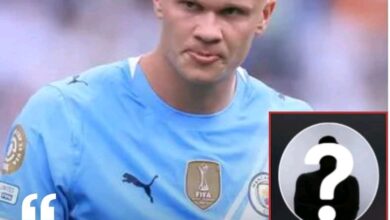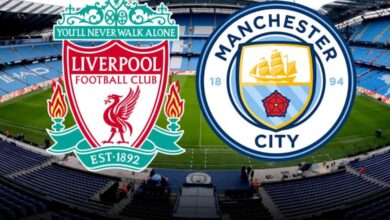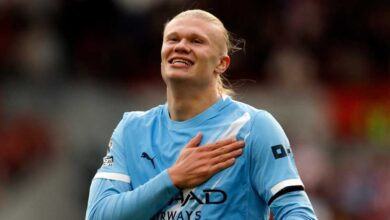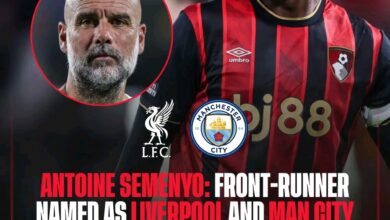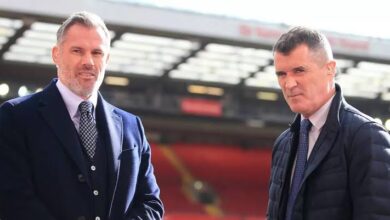Manchester City Manager Would Rather Resign Than Abandon His Principles

In the high-pressure world of elite football management, where results often dictate job security, Manchester City’s Pep Guardiola stands as a rare figure of philosophical conviction. Following consecutive defeats to Tottenham Hotspur in the Premier League and a humbling 4-0 loss to his former club Barcelona in the Champions League, Guardiola faced mounting criticism for his perceived tactical inflexibility. Yet rather than considering a more pragmatic approach, the Catalan manager doubled down on his beliefs with a remarkable declaration of intent.
“No, no, I’m not going to change,” Guardiola asserted with characteristic intensity during a press conference at the City Football Academy. “If it’s not going well in the future, if next season isn’t going well playing that way, I will go home.”
This bold statement represents more than mere stubbornness. It embodies a lifelong dedication to a particular vision of how football should be played – a commitment that has defined Guardiola’s career from his playing days under Johan Cruyff at Barcelona to his managerial triumphs at three of Europe’s most prestigious clubs.
To understand Guardiola’s unwavering stance, one must first appreciate the sophistication of his footballing ideology. Often mischaracterized as simply “tiki-taka” or possession for possession’s sake, Guardiola’s approach represents a comprehensive football philosophy built on spatial awareness, positional play, and technical excellence.
The foundations of this philosophy were laid during Guardiola’s formative years at Barcelona’s La Masia academy, where the influence of Johan Cruyff’s Total Football principles left an indelible mark on the young midfielder. As a deep-lying playmaker for Barcelona, Guardiola became the on-field embodiment of these principles, dictating tempo and orchestrating play from his position at the base of midfield.
When he transitioned to management at Barcelona B and subsequently the first team in 2008, Guardiola refined these concepts further, creating a system that dominated world football. His Barcelona team, featuring luminaries like Lionel Messi, Xavi Hernandez, and Andres Iniesta, won 14 trophies in four seasons while playing a style characterized by high pressing, positional fluidity, and meticulous build-up play.
At Bayern Munich and now Manchester City, Guardiola has continuously evolved his approach while maintaining its core principles. His teams are recognizable not just for their possession statistics but for their structured positional play, their manipulation of space, their triangulation patterns, and their aggressive counter-pressing when possession is lost.
The recent criticism directed at Guardiola following the defeats to Tottenham and Barcelona centers on what some perceive as tactical naivety. Former Manchester United captain Roy Keane, now a prominent pundit, described Guardiola’s approach at the Camp Nou as “very brave but very stupid,” suggesting that the Catalan’s commitment to playing out from the back and maintaining his high defensive line against Barcelona’s formidable front three of Messi, Suarez, and Neymar demonstrated a dangerous idealism.
Such criticism is not new for Guardiola. Throughout his career, his teams have occasionally suffered spectacular defeats when their high-risk approach has been exploited by well-organized opponents capable of rapid transitions. However, these defeats must be contextualized within the broader pattern of sustained success that Guardiola’s methods have produced.
“I won 21 titles in seven years. That’s three titles per year playing that way,” Guardiola pointed out, referencing his combined trophy haul at Barcelona and Bayern Munich. This remarkable record of achievement provides substantial validation for his footballing philosophy and explains his reluctance to compromise on his principles even during challenging periods.
Despite his steadfast commitment to his core principles, it would be inaccurate to suggest that Guardiola is inflexible or resistant to change. Throughout his managerial career, he has demonstrated a capacity for tactical innovation and adaptation while maintaining his fundamental philosophy.
At Barcelona, his teams were characterized by their 4-3-3 formation with Messi often deployed as a “false nine.” At Bayern Munich, he experimented with inverted full-backs and multiple formations, sometimes using a 3-4-3 or even more exotic alignments to solve specific tactical problems. At Manchester City, he has further refined these concepts, developing a system that emphasizes width from wingers while full-backs often move into central midfield positions when in possession.
What has remained consistent throughout these evolutions is not the specific formations or personnel choices but rather the underlying principles of play: dominating possession, creating numerical superiority in key areas of the pitch, aggressive pressing, positional fluidity, and a commitment to attacking football.
Guardiola clarified this distinction in his press conference: “Changing doesn’t mean not using long balls, you have to use long balls.” This statement highlights an important nuance often missed by his critics – Guardiola’s approach is not dogmatically opposed to directness when appropriate, but rather seeks to ensure that all actions on the field are purposeful and controlled.
While media pundits and sections of supporters may question Guardiola’s methods during difficult periods, the Catalan takes particular pride in the recognition he receives from fellow coaches who understand the complexities of implementing such a demanding style of play.
In his press conference, Guardiola highlighted praise from Everton manager Ronald Koeman, a fellow Cruyff disciple from their shared time at Barcelona. “My best friend – and maybe he did it because he’s my best friend – Ronald Koeman said in his press conference he’d never faced a team who plays football like this,” Guardiola noted. “That’s the best title, the best compliment I ever received.”
This professional validation speaks to a broader truth about Guardiola’s impact on modern football. Beyond the trophies and records, his most significant achievement may be the widespread influence of his footballing ideas. Managers across Europe and beyond have incorporated elements of Guardiola’s approach into their own methodologies, from his former assistant Mikel Arteta at Arsenal to disciples like Xavi Hernandez and countless others.
One aspect often overlooked in discussions of Guardiola’s philosophy is the immense challenge of successfully implementing it. His approach demands not only technically proficient players but also cognitively sophisticated ones capable of understanding complex positional concepts and making rapid decisions under pressure.
When Guardiola arrived at Manchester City, he inherited a talented squad that nevertheless required significant reshaping to execute his vision effectively. The process of adaptation was not instantaneous, with early struggles highlighting the gap between theoretical understanding and practical application of his methods.
“If you believe I arrive here and in three months everything is going well and I’m going to win in the Camp Nou 0-4, that I’m going to dominate against Messi, Luis Suarez and Neymar… no. I’m good, but it’s not enough,” Guardiola acknowledged with characteristic candidness.
This statement reflects a realistic assessment of the time required to fully implement his philosophy at a new club. At Barcelona, Guardiola benefited from a generation of players raised in La Masia’s educational system, making them naturally receptive to his ideas. At Bayern Munich and Manchester City, more adaptation was necessary, requiring both patience and pedagogical skill on Guardiola’s part
As Guardiola enters the later stages of his Manchester City tenure, questions inevitably arise about his legacy. Will history remember him primarily as a coach whose methods were effective only with world-class players at elite clubs? Or will he be recognized as a revolutionary figure who fundamentally changed how football is played and understood?
The evidence increasingly suggests the latter. Beyond the impressive trophy cabinet, Guardiola’s influence can be seen in how teams at all levels now approach building from the back, in how goalkeepers are expected to participate in build-up play, in how positional concepts have become part of mainstream football discourse, and in how pressing has become a fundamental aspect of the modern game.
Moreover, Guardiola’s willingness to stake his career on his principles represents a level of conviction rare in professional sports. In an era where many coaches adopt pragmatic approaches designed to maximize short-term results, Guardiola’s philosophical commitment stands as a counterpoint – a belief that how you win matters as much as winning itself.
The challenge for Guardiola, as for any idealist in a results-driven industry, is maintaining the delicate balance between principle and pragmatism. While his statement about leaving Manchester City if his methods fail demonstrates admirable conviction, it also places immense pressure on him to continue delivering success.
The history of football is littered with visionary coaches whose ideas were ahead of their time but who ultimately lacked the patience or support to see their projects through to fruition. Guardiola has thus far avoided this fate through a combination of tactical genius, exceptional man-management, and the backing of sympathetic club hierarchies.
At Manchester City, he benefits from working with former Barcelona executives Txiki Begiristain and Ferran Soriano, who share his footballing vision and have provided both the financial resources and the organizational stability needed to implement it. This alignment between coach and club has created an environment where Guardiola’s philosophy can flourish even during periodic setbacks.
One of the most interesting aspects of Guardiola’s career has been his ability to maintain philosophical consistency while demonstrating tactical flexibility. While the core principles remain unchanged, his approach has evolved to address different challenges and to maximize the strengths of the players at his disposal.
At Barcelona, with technically exceptional midfielders like Xavi and Iniesta, the emphasis was on intricate short passing through central areas. At Bayern Munich, with different player profiles, Guardiola made greater use of wing play and crossing. At Manchester City, he has further expanded his tactical repertoire, incorporating elements like inverted full-backs and false 9s while still maintaining his fundamental principles.
This adaptability within consistency is what separates truly great coaches from merely successful ones. Guardiola’s ability to evolve his approach while maintaining his core identity has allowed him to remain at the forefront of tactical innovation for over a decade – an eternity in the fast-changing world of elite football.
Beyond the tactical sophistication and philosophical conviction, Guardiola’s success as a manager is also deeply rooted in his human qualities. Former players consistently highlight his attention to detail, his emotional intelligence, and his ability to create environments where players feel both supported and challenged.
Guardiola’s intense, sometimes manic sideline demeanor reflects a coach who is fully invested in his team’s performance. This passion, combined with his clear communication and meticulous preparation, creates a powerful connection with his players, who typically express profound admiration for him even years after leaving his guidance.
This human dimension should not be overlooked when analyzing Guardiola’s coaching philosophy. His tactical approach works not just because of its theoretical soundness but because he possesses the communicative and motivational skills necessary to convince elite players of its validity and to inspire them to execute it under pressure
As Guardiola continues his Manchester City journey, the question is not whether he will change his approach – he has made his position on that abundantly clear – but rather how he will refine and evolve it to address new challenges. The Premier League’s intensely competitive environment and the Champions League’s knockout format present particular tests for his philosophy, requiring continuous adaptation while maintaining core principles.
The recent defeats to Tottenham and Barcelona, while painful, represent opportunities for learning and growth rather than evidence of fundamental flaws in Guardiola’s approach. Throughout his career, he has demonstrated an ability to analyze setbacks and implement adjustments without abandoning his footballing vision.
“But if you believe I arrive here and in three months everything is going well and I’m going to win in the Camp Nou 0-4… no,” Guardiola reminded reporters, emphasizing the need for patience and perspective. This realism, combined with his unwavering faith in his methods, suggests a coach who understands both the power and the limitations of his philosophy.
In an era where football managers often speak in cautious clichés and hedge their bets with tactical compromises, Pep Guardiola’s frank declaration that he would rather leave Manchester City than change his style represents a refreshing clarity of vision. It speaks to a deep-seated belief that football should be played in a particular way – not just to win, but to inspire and to advance the art of the game itself.
This faith – in his players, in his methods, and ultimately in football itself – is what defines Guardiola as a coach. It is what has enabled him to achieve unprecedented success at Barcelona, Bayern Munich, and now Manchester City. And it is what will ultimately determine his legacy, regardless of how many more trophies he adds to his already impressive collection.
“I’m not going to change,” Guardiola insisted, with the conviction of a man who knows exactly who he is and what he believes. In a football world often characterized by compromise and expediency, such clarity of purpose stands as its own kind of victory.
As Manchester City fans and football observers worldwide look on, Guardiola continues his quest to prove that his footballing ideals can triumph at the highest level – not despite their philosophical purity, but because of it. It is a quest driven not by stubbornness but by a profound belief that there is a right way to play this beautiful game, and that, given time and trust, this way will ultimately prevail.
In the final analysis, it is this unwavering faith that makes Pep Guardiola not just a successful coach but a truly significant one – a figure whose impact on football will be felt long after he finally does decide to “go home.”






